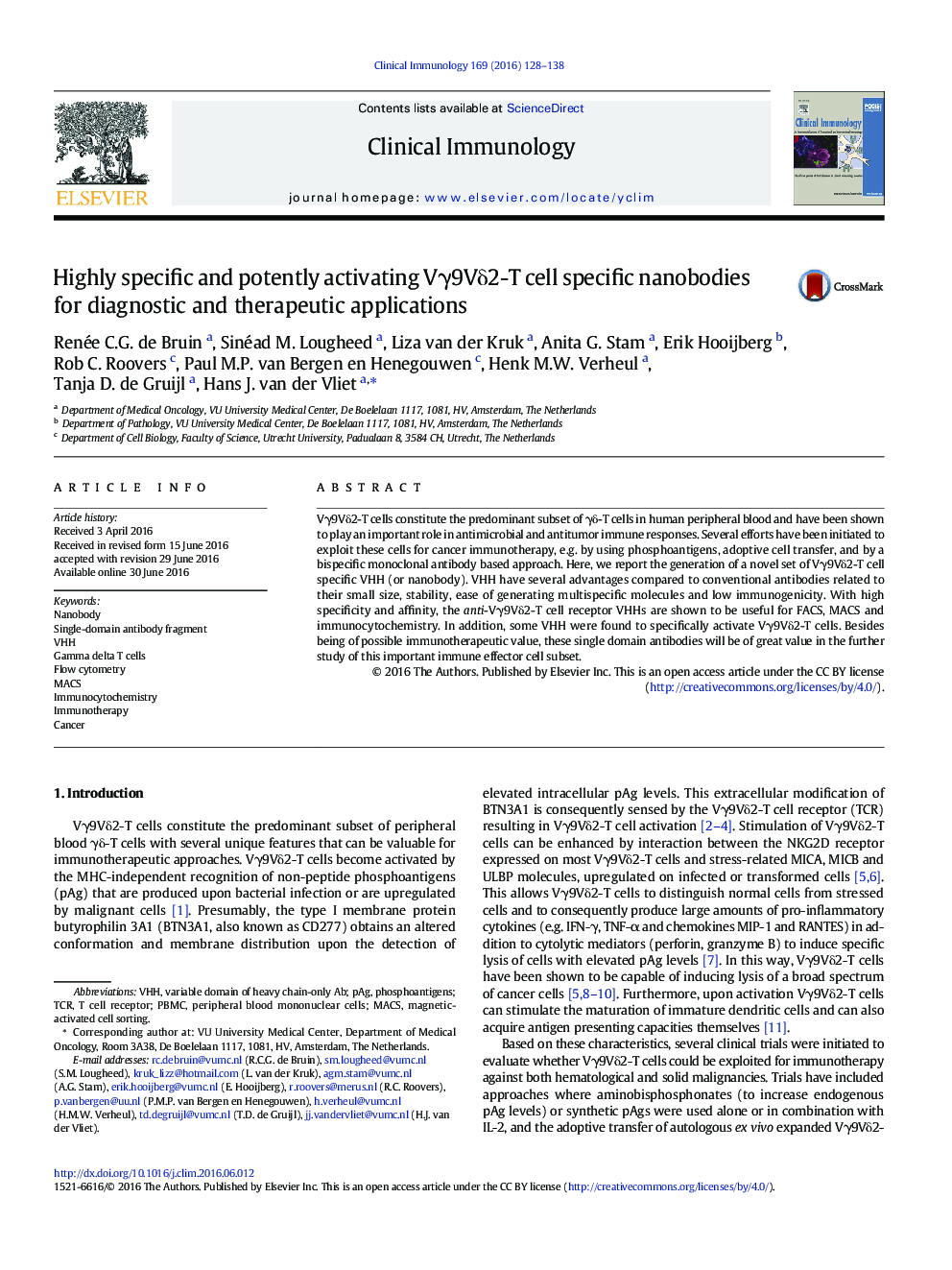| Article ID | Journal | Published Year | Pages | File Type |
|---|---|---|---|---|
| 6086998 | Clinical Immunology | 2016 | 11 Pages |
â¢Novel Vγ9Vδ2-T cell specific VHH are generated and functionally characterized.â¢Both activating and non-activating VHH have been identified.â¢The VHHs are useful for FACS, MACS and immunocytochemistry to study Vγ9Vδ2-T cells.â¢These VHHs are possibly of value for immunotherapeutic development.
Vγ9Vδ2-T cells constitute the predominant subset of γδ-T cells in human peripheral blood and have been shown to play an important role in antimicrobial and antitumor immune responses. Several efforts have been initiated to exploit these cells for cancer immunotherapy, e.g. by using phosphoantigens, adoptive cell transfer, and by a bispecific monoclonal antibody based approach. Here, we report the generation of a novel set of Vγ9Vδ2-T cell specific VHH (or nanobody). VHH have several advantages compared to conventional antibodies related to their small size, stability, ease of generating multispecific molecules and low immunogenicity. With high specificity and affinity, the anti-Vγ9Vδ2-T cell receptor VHHs are shown to be useful for FACS, MACS and immunocytochemistry. In addition, some VHH were found to specifically activate Vγ9Vδ2-T cells. Besides being of possible immunotherapeutic value, these single domain antibodies will be of great value in the further study of this important immune effector cell subset.
